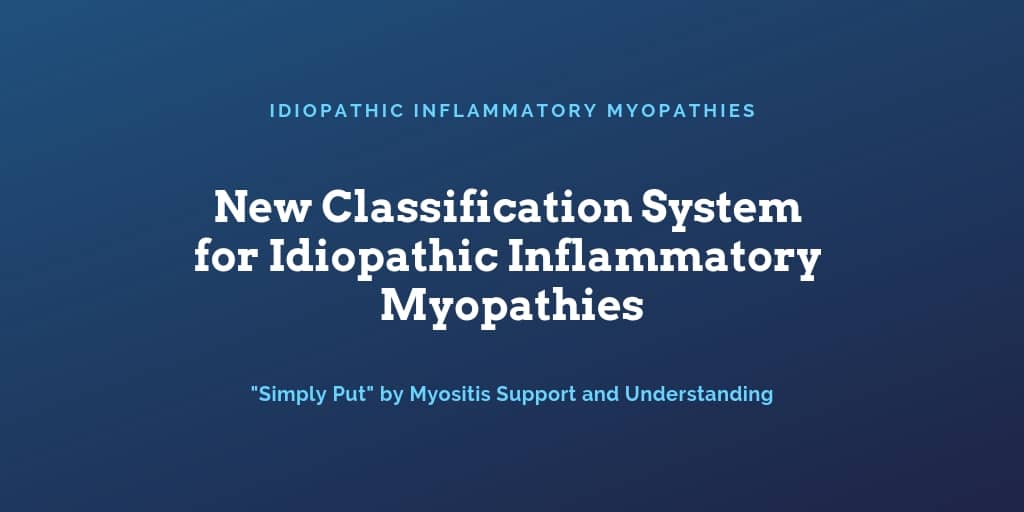The authors propose that a new classification system for Idiopathic Inflammatory Myopathies (IIM) based on phenotypic (observable characteristics), biologic and immunologic criteria is needed based on the results of their study. One of the difficulties associated with the diagnosis and treatment of IIMs is that they affect patients differently, have various causes and respond to treatments in various ways. Having a classification system based on well-defined criteria would be helpful in early and accurate diagnosis and identification of appropriate therapies.
This observational, retrospective cohort study was conducted using a French myositis network database and included patients with neuromuscular disease identified between January 1, 2003 and February 1, 2016. The researchers included 260 adult myositis patients who had complete data records and who had been diagnosed with polymyositis, dermatomyositis, and inclusion body myositis based on historical classification methods. Of the 260 patients, 163 were women, the mean age was 59.7 years, and the median age was 61.5 years. In total, 708 variables were available for each patient, such as cancer and lung involvement, of which 47 were selected for inclusion, including results from testing for the following autoantibodies:
- anti–histidyl-ARN-t- synthetase (Jo1)
- anti–threonine-ARN-t-synthetase (PL7)
- anti–alanine-ARN-t-synthetase (PL12)
- anti–complex nucleosome remodeling histone deacetylase (Mi2)
- anti-Ku, anti–polymyositis/systemic scleroderma (PMScl)
- anti–topoisomerase 1 (Scl70)
- anti–signal recognition particle (SRP)
Based on the data, the authors conducted statistical analysis to determine subgroups of patients. Specifically, they applied unsupervised multiple correspondence analysis and hierarchical clustering analysis techniques to arrive at their findings. Unsupervised multiple correspondence analysis is a process of exploration and discovery of the data used to visualize relationships between all the variables included in the study. Hierarchical clustering analysis is used to identify groups within the data with no pre-conceived idea of the number of groups that might be identified. This analysis revealed the following:
| Group | Number of Patients | Description | Disease |
| Cluster 1 | 77
72 (93.5%) of whom were previously diagnosed with Inclusion Body Myositis) |
Male
White Older than 60 years Finger Flexor Weakness Quadriceps Weakness Vacuolated Fibers and Mitochondrial Abnormalities |
Inclusion Body Myositis |
| Cluster 2 | 91
53 (58.2%) of whom had been previously diagnosed with Immune Mediated Necrotizing Myopathy |
Women
High Creatinine Phosphokinase Levels Necrosis without Inflammation anti-SRP, or anti-3-hydroxy-3-methylglutaryl-coenzyme A reductase (HMGCR) antibodies |
Immune Mediated Necrotizing Myopathy |
| Cluster 3 | 52
43 (82.7) of whom had been previously diagnosed with Dermatomyositis |
Dermatomyositis Rash
anti-Mi2, anti-melanoma differentiation-associated protein 5 (MDA5), or anti-transcription intermediary factor-1g (IF1g) |
Dermatomyositis |
| Cluster 4 | 40
36 (90%) of whom had been previously diagnosed with Antisynthetase Syndrome |
anti-Jo1, or
anti-PL7 antibodies |
Antisynthetase Syndrome |
Based on their findings, the authors state that Idiopathic Inflammatory Myopathies should be classified using four subgroups: dermatomyositis, inclusion body myositis, immune-mediated necrotizing myopathy, and antisynthetase syndrome.
Read Full Article Tags: diagnosing myositis myositis research









